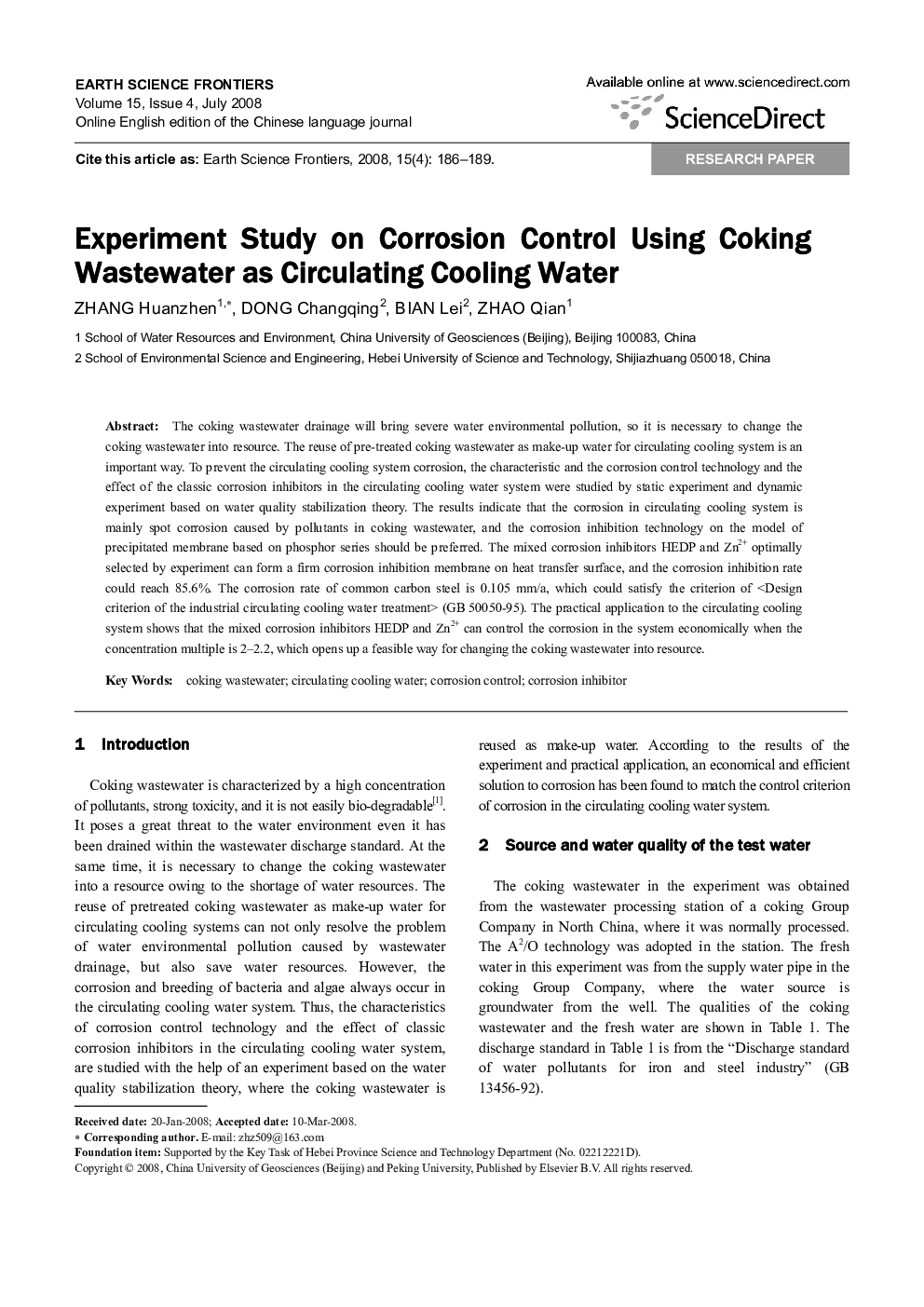| Article ID | Journal | Published Year | Pages | File Type |
|---|---|---|---|---|
| 4701626 | Earth Science Frontiers | 2008 | 4 Pages |
The coking wastewater drainage will bring severe water environmental pollution, so it is necessary to change the coking wastewater into resource. The reuse of pre-treated coking wastewater as make-up water for circulating cooling system is an important way. To prevent the circulating cooling system corrosion, the characteristic and the corrosion control technology and the effect of the classic corrosion inhibitors in the circulating cooling water system were studied by static experiment and dynamic experiment based on water quality stabilization theory. The results indicate that the corrosion in circulating cooling system is mainly spot corrosion caused by pollutants in coking wastewater, and the corrosion inhibition technology on the model of precipitated membrane based on phosphor series should be preferred. The mixed corrosion inhibitors HEDP and Zn2+ optimally selected by experiment can form a firm corrosion inhibition membrane on heat transfer surface, and the corrosion inhibition rate could reach 85.6%. The corrosion rate of common carbon steel is 0.105 mm/a, which could satisfy the criterion of > Design criterion of the industrial circulating cooling water treatment > (GB 50050-95). The practical application to the circulating cooling system shows that the mixed corrosion inhibitors HEDP and Zn2+ can control the corrosion in the system economically when the concentration multiple is 2–2.2, which opens up a feasible way for changing the coking wastewater into resource.
